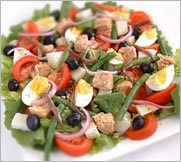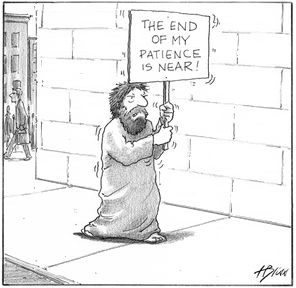Another good conversation with Chico and Tatiana this past week (apologies to Chico for sending his name out into the technosphere). We were talking about the current move in the church to be more honest about our limitations and faults. Admitting the sinfulness of the church or our local community, but trying to accept that "it's the best we can do right now." I am uncomfortable with that acceptance. Not too happy admitting that the church—the body of Christ—is limited or sinful, either, though I know that we who call ourselves Christians are certainly limited and sinful. I raised the question:
"Is the nature of the body of Christ determined by its members?"
I guess I don't think so. I don't think the nature of Christ's body is determined, or even limited, by us. What the body of Christ is, what it has to offer, who it encompasses, all of this is determined by Christ, not us. It's his body. The nature of it has to be his nature or it's not his body. What we offer to people when we invite them into the church is Jesus—his fulfillment, his promises, his provision, his protection—
him.
The best way I can understand this along with our experience of people in the church (or in our local communities) being so unlike Christ, is to think that we are only part of Christ's body when we are being directed by him as our head, only when we are
acting as part of his body.
That seems like a strange way to think about it, and maybe that imagery doesn't work for everyone. Perhaps we can't think of a body as losing and gaining parts of itself so fluidly; with a body the parts tend to be pretty permanent. Maybe the imagery of Jesus' followers as "the kingdom of God" is better in this regard. That's what Jesus used to describe the church. And I've heard many people talk of this kingdom as not clearly defined (by territory or ethnicity or political boundaries) but as the people who are living under the reign of God, those who obey and are loyal to God. With this understanding it's easier to see that we can and do regularly rebel against God's reign over us, are disloyal and disobedient. And so are we still properly called people of God's kingdom at those moments, during those times of rebellion?
We are always freely invited into the kingdom of God (or invited
back into it). And we are offered the power of God to live as his people if we are willing. But the kingdom of God is
God's kingdom, not ours, and so he determines the nature of it, its membership, what it has to offer those who enter it, God determines this, not us. We can decide whether or not we will be a part of it, but it is not ours. We don't shape it or limit it. It is God's.
 Heather got me to help canning some salsa a couple days ago. Lots of tomatoes that need to be used right now or they go to waste. We had a good recipe from our friend Celina, with cilantro and lime, and I think we managed to convert it well into the large batch that we did. Thirteen and a half quart jars. That should hold us for a while.
Heather got me to help canning some salsa a couple days ago. Lots of tomatoes that need to be used right now or they go to waste. We had a good recipe from our friend Celina, with cilantro and lime, and I think we managed to convert it well into the large batch that we did. Thirteen and a half quart jars. That should hold us for a while.







 subscribe
subscribe